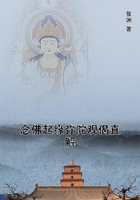Civil dignities include not only such as are connected with a public office, but also those which make the possessors of them, without any accompanying services to the state, members of a higher class or rank.The latter constitute the nobility, whose members are distinguished from the common citizens who form the mass of the people.The rank of the nobility is inherited by male descendants; and these again communicate it to wives who are not nobly born.Female descendants of noble families, however, do not communicate their rank to husbands who are not of noble birth, but they descend themselves into the common civil status of the people.This being so, the question then emerges as to whether the sovereign has the right to found a hereditary rank and class, intermediate between himself and the other citizens? The import of this question does not turn on whether it is conformable to the prudence of the sovereign, from regard to his own and the people's interests, to have such an institution; but whether it is in accordance with the right of the people that they should have a class of persons above them, who, while being subjects like themselves, are yet born as their commanders, or at least as privileged superiors? The answer to this question, as in previous instances, is to be derived from the principle that "what the people, as constituting the whole mass of the subjects, could not determine regarding themselves and their associated citizens, cannot be constitutionally determined by the sovereign regarding the people."Now a hereditary nobility is a rank which takes precedence of merit and is hoped for without any good reason- a thing of the imagination without genuine reality.For if an ancestor had merit, he could not transmit it to his posterity, but they must always acquire it for themselves.Nature has in fact not so arranged that the talent and will which give rise to merit in the state, are hereditary.And because it cannot be supposed of any individual that he will throw away his freedom, it is impossible that the common will of all the people should agree to such a groundless prerogative, and hence the sovereign cannot make it valid.It may happen, however, that such an anomaly as that of subjects who would be more than citizens, in the manner of born officials, or hereditary professors, has slipped into the mechanism of government in olden times, as in the case of the feudal system, which was almost entirely organized with reference to war.Under such circumstances, the state cannot deal otherwise with this error of a wrongly instituted rank in its midst, than by the remedy of a gradual extinction through hereditary positions being left unfilled as they fall vacant.The state has therefore the right provisorily to let a dignity in title continue, until the public opinion matures on the subject.And this will thus pass from the threefold division into sovereign, nobles, and people, to the twofold and only natural division into sovereign and people.
No individual in the state can indeed be entirely without dignity;for he has at least that of being a citizen, except when he has lost his civil status by a crime.As a criminal he is still maintained in life, but he is made the mere instrument of the will of another, whether it be the state or a particular citizen.In the latter position, in which he could only be placed by a juridical judgement, he would practically become a slave, and would belong as property (dominium) to another, who would be not merely his master (herus)but his owner (dominus).Such an owner would be entitled to exchange or alienate him as a thing, to use him at will except for shameful purposes, and to dispose of his powers, but not of his life and members.No one can bind himself to such a condition of dependence, as he would thereby cease to be a person, and it is only as a person that he can make a contract.It may, however, appear that one man may bind himself to another by a contract of hire, to discharge a certain service that is permissible in its kind, but is left entirely undetermined as regards its measure or amount; and that as receiving wages or board or protection in return, he thus becomes only a servant subject to the will of a master (subditus) and not a slave (servus).But this is an illusion.For if masters are entitled to use the powers of such subjects at will, they may exhaust these powers- as has been done in the case of Negroes in the Sugar Island-and they may thus reduce their servants to despair and death.But this would imply that they had actually given themselves away to their masters as property; which, in the case of persons, is impossible.Aperson can, therefore, only contract to perform work that is defined both in quality and quantity, either as a day-labourer or as a domiciled subject.In the latter case he may enter into a contract of lease for the use of the land of a superior, giving a definite rent or annual return for its utilization by himself, or he may contract for his service as a labourer upon the land.But he does not thereby make himself a slave, or a bondsman, or a serf attached to the soil (glebae adscriptus), as he would thus divest himself of his personality; he can only enter into a temporary or at most a heritable lease.And even if by committing a crime he has personally become subjected to another, this subject-condition does not become hereditary; for he has only brought it upon himself by his own wrongdoing.Neither can one who has been begotten by a slave be claimed as property on the ground of the cost of his rearing, because such rearing is an absolute duty naturally incumbent upon parents; and in case the parents be slaves, it devolves upon their masters or owners, who, in undertaking the possession of such subjects, have also made themselves responsible for the performance of their duties.
E.The Right of Punishing and of Pardoning.
I.The Right of Punishing.















